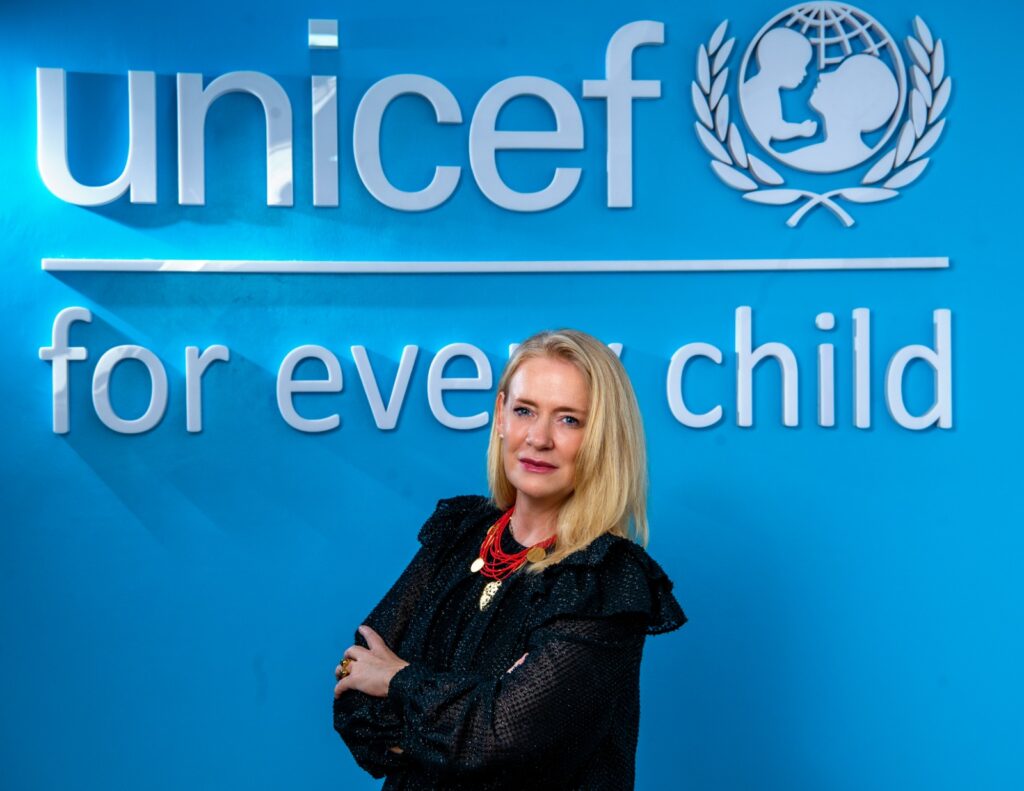… Experts Call For Male Involvement, Media action To Break Cultural Myths
Daud Olatunji
The United Nations Children’s Fund (UNICEF) has warned that Nigeria risks a surge in Female Genital Mutilation (FGM) cases if urgent steps are not taken to dismantle myths and traditions sustaining the practice, particularly in the South-West.
Despite being outlawed, Nigeria still ranks third globally in FGM prevalence, with nearly 20 million women and girls already subjected to the procedure, mostly before their sixth birthday.
Speaking at a two-day media dialogue on advocacy against FGM, Chief of UNICEF Lagos Field Office, Celine Lafoucriere, described the practice as “a grave violation of the rights of women and girls,” stressing that no cultural or religious tradition should come at the expense of their dignity and health.
“Most of these girls were cut before their sixth birthday, when they were powerless to resist or understand what was happening. This practice continues, driven by myths and traditions, despite being outlawed,” Lafoucriere said.
UNICEF stressed that eliminating FGM is achievable within a generation, but only if governments, community leaders, faith groups, men, and the media work together to dismantle cultural justifications.
“Every girl deserves the right to grow up whole, healthy and free from harm. The time to act is now,” Lafoucriere declared.
UNICEF’s Child Protection Specialist, Dennis Onoise, noted that Nigeria could witness a 50 percent rise in cases unless urgent interventions are scaled up.
He dismissed long-held cultural justifications for FGM, stressing that it has no medical or moral benefits.
“FGM does not prevent promiscuity as many believe. What it causes are life-threatening complications such as severe bleeding, infections, urinary incontinence and long-term reproductive health problems,” Onoise explained.
FGM consultant, Mrs. Aderonke Olutayo, lamented that men — who are often the key decision-makers in families — are rarely engaged in advocacy efforts.
She called for deliberate efforts to bring fathers and boys into the campaign, noting that leaving them out slows progress.
“Without the support of men, who are often the final decision-makers, advocacy will remain incomplete. We need to dismantle myths, not just among women but also among men who perpetuate this tradition,” Olutayo said.
Participants at the dialogue, which included journalists, civil society groups and government officials, emphasized the crucial role of the media in setting the agenda against FGM.
Permanent Secretary, Oyo State Ministry of Information, Rotimi Babalola, urged journalists to adopt sensitive yet powerful reporting that challenges harmful narratives without retraumatizing survivors.
“The media must go beyond event reporting. Investigative stories should expose cutters, medical collaborators and those who aid the practice.
“At the same time, journalists should amplify survivors’ voices and educate communities,” Babalola said.
The event also highlighted new advocacy strategies, including cross-sector collaboration, community sensitization, and stronger survivor-led campaigns.
Do you want to share a story with us? Do you want to advertise with us? Do you need publicity for a product, service, or event? Contact us on WhatsApp +2348183319097 Email: platformtimes@gmail.com
We are committed to impactful investigative journalism for human interest and social justice. Your donation will help us tell more stories. Kindly donate any amount HERE




